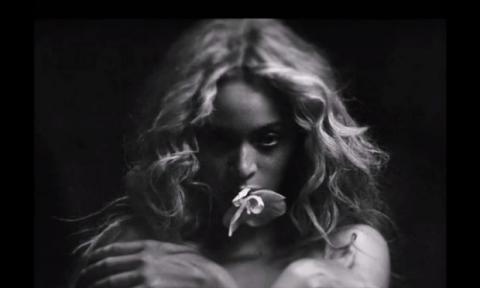While I have always been a fan of Beyoncé, I’m not someone you’d consider one of the beyhive. So I am rarely the first to hear about Beyoncé’s latest projects. Most of my weekend was dedicated to thinking about Prince, crying about Prince and making my son watch videos of Prince. But when I dried my tears Sunday morning, I saw that Lemonade had dropped the evening before. And according to press, this was an album about Jay Z.
To read early headlines, Lemonade is about Beyoncé and Jay Z, or it’s about what a dog Jay Z is, it’s about that infamous elevator fight, it’s about Beyoncé being mad at Jay Z, it’s about Beyoncé’s heartbreak over Jay Z.
I’m never very personally invested in celebrity relationships, but I’d watch Beyoncé sing my old chemistry textbook, so I sat down to watch Lemonade expecting to at the very least be entertained.
I was not expecting to be cracked wide open by this project. I was not expecting to shed a lifetime of tears. But I did. Lemonade is about so much more than one relationship and its infidelity. Lemonade is about the love that black women have – the love that threatens to kill us, makes us crazy and makes us stronger than we should ever have to be.
We are the women left behind. We are the women who have cared for other women’s children while ours were taken away. We are the women who work two jobs when companies won’t hire our men. We are the women caring for grandchildren as our sons are taken by the prison industrial complex. We are the women who march in the streets and are never marched for. We are the women expected to never air our grievances in public. We are the women expected to stay loyal to our men by staying silent through abuse and infidelity. We are the women who clean the blood of our men and boys from the streets. We are the women who gather their belongings from the police station.
When our love and commitment and struggle is met with disregard and disloyalty, we are not expected to be angry. A black woman who shows her anger is quickly scorned. “Black men have so much to deal with already,” people say, “it is your job to support him and help him become a better man.” The meekness expected of us stands in ironic contrast with the strength required to navigate this world as a black woman. “Who the fuck do you think I am?” Beyoncé angrily asks a world that could so foolishly underestimate a black woman.
When our hearts are broken and we are crying in pain, we are told that it’s our fault. We were too needy, too jealous, too critical. To be told that it is our duty to love with all we have and that if that love isn’t returned it is because we loved both too much and not enough, it can make you crazy. In Hold Up, Beyoncé asks: “What’s worse, looking jealous and crazy? Or being walked all over lately? I’d rather be crazy.”
This expectation of black women to suffer in silence is passed from generation to generation. Beyoncé explores this inheritance unflinchingly: “You remind me of my father - a magician, able to exist in two places at once / In the tradition of men in my blood you come home at 3am and lie to me.”And from this deep, heartbreaking love is born a strength that we shouldn’t have to have. Generations of work, love and neglect have made quiet warriors of us. Our very existence is a protest. Beyoncé celebrates the beauty and strength of black womanhood by featuring black women who have stood tall despite constant persecution for their blackness. Quvenzhané Wallis, a brilliant young actor often mocked for her kinky hair, unique name and dark skin, stands proudly next to the queen Bey knowing that she belongs there. Serena Williams, the most gifted athlete alive today who is still mocked for her large, strong body and distinctly black beauty, twerks defiantly at the viewer.
Perhaps the most straightforward and heartbreaking homage to the women left behind – the women who will be left to put it all back together again - are the appearances of Sybrina Fulton, Lezley McSpadden and Gwen Carr. They sit stoically, holding portraits of their fallen sons, Trayvon Martin, Michael Brownand Eric Garner. These are women who, like so many black women, carry their love and pain forward as they continue to fight for black people in a world that doesn’t acknowledge they exist.
But Beyoncé sees us because she’s one of us, and will not allow us to drown in despair. In Freedom, Beyoncé gathers us all together for a southern revival that glories in our strength. “I need freedom too. I break these chains all by myself.”
What an amazing love-filled gift Beyoncé has given us all. This album will help me, and many other black women I know, get through some of the dark days to come.


Spread the word